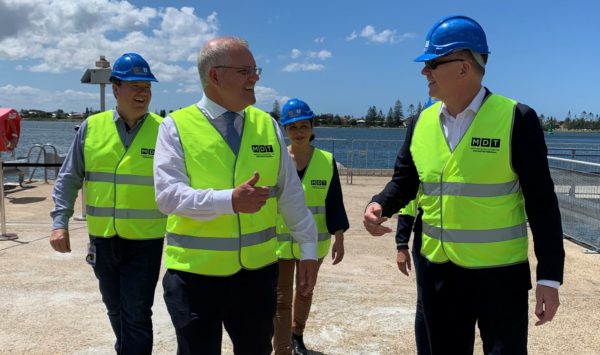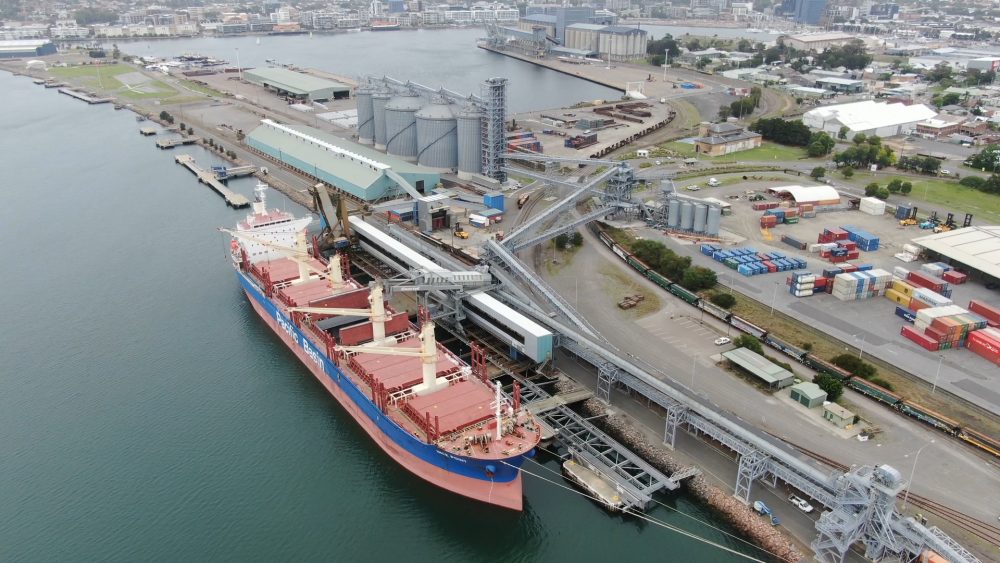In a town famous for coal, the Port of Newcastle has positioned itself as a leader in the transition to renewable energy, announcing its operations are now powered entirely by green energy.
The Port of Newcastle has signed a deal with Iberdrola for a retail power purchase agreement (PPA) that provides the port with large scale generation certificates (LGCs) linked to the 113 MW Bodangora wind farm near Dubbo in regional New South Wales (NSW).
Port of Newcastle chief executive Craig Carmody said the move is part of a plan to decarbonise the business by 2040 and delivers upon sustainability commitments set in 2020.
“In achieving 100% renewable energy at Port of Newcastle we are showing tangible evidence of just how committed we are to driving sustainability in every aspect of our business,” he said.
“Port of Newcastle’s 100% renewable power deal directly supports the development of renewable infrastructure and will deliver significant environmental improvements at the port.”
The largest port on Australia’s east coast with approximately 4,400 ship movements annually, the Port of Newcastle is rated the largest coal port in the world, exporting an average of 165 megatonne of coal a year.
Carmody said by switching to being powered by 100% renewables, the port has reduced carbon emissions by almost 5,000 cubic tonnes, equivalent to taking 1,000 cars off the road or planting 80,000 trees each year.
The renewables achievement comes after the Australian Renewable Energy Agency (ARENA) announced a $3 million feasibility study would be conducted into the development of a 40 MW green hydrogen hub at the Port of Newcastle
The study, partially funded through $1.5 million from ARENA and to be led by the Port of Newcastle and Macquarie’s Green Investment Group, will determine if the project is deemed to have sufficient potential.

Image: Port of Newcastle
The study will also investigate the potential to scale up green hydrogen production for export, leveraging the port’s existing domestic and international supply chain links. While stage one of the project is underpinned by a 40 MW electrolyser, the study will also consider the future staged scale up of an electrolyser to around 1 GW with the ability to produce up to 150,000 tonnes of green hydrogen per year for domestic and export use.
“Port of Newcastle is working to realise projects now that will drive the diversification of our business and the Hunter Region over the next 10, 20, 50 years and beyond,” Carmody said.
“We are committed to continuous improvement in line with our Environment Social and Governance (ESG) Strategy and carbon emission reduction targets and look forward to what we can achieve in 2022.”
Iberdrola’s renewable power deal with the Port of Newcastle is the second PPA it has secured for the Bodangora Wind Farm. The company said a PPA for electricity and LGCs for 60% of the facility’s electricity generation is already in place with Energy Australia until 31 December 2030.
The transaction affirms Iberdrola’s position as a major player in Australia’s renewable energy market. With more than 800 MW operating capacity, 453 MW under construction and a development pipeline of over 1 GW, much of its focus has been on wind energy, with seven operational wind farms totalling over 670 MW, but Iberdrola, which acquired Infigen Energy in 2020, has in recent times turned its attention toward solar and energy storage.
In September it purchased the 190 MW Avonlie Solar Farm project near Narrandera, in southern NSW, and is developing the 320 MW Port Augusta Renewable Energy Park (PAREP) in South Australia. The $500 million project will combine 210 MW of wind with 107 MW of solar to generate an estimated 900 GWh of renewable energy annually, enough to power about 180,000 Australian households each year.
Iberdrola also operates the 25 MW / 52 MWh Lake Bonney battery energy storage system in SA and has entered into a user agreement with transmission network operator TransGrid in relation to the 50 MW/75 MWh Wallgrove Grid Battery in NSW.
This content is protected by copyright and may not be reused. If you want to cooperate with us and would like to reuse some of our content, please contact: editors@pv-magazine.com.









3 comments
By submitting this form you agree to pv magazine using your data for the purposes of publishing your comment.
Your personal data will only be disclosed or otherwise transmitted to third parties for the purposes of spam filtering or if this is necessary for technical maintenance of the website. Any other transfer to third parties will not take place unless this is justified on the basis of applicable data protection regulations or if pv magazine is legally obliged to do so.
You may revoke this consent at any time with effect for the future, in which case your personal data will be deleted immediately. Otherwise, your data will be deleted if pv magazine has processed your request or the purpose of data storage is fulfilled.
Further information on data privacy can be found in our Data Protection Policy.